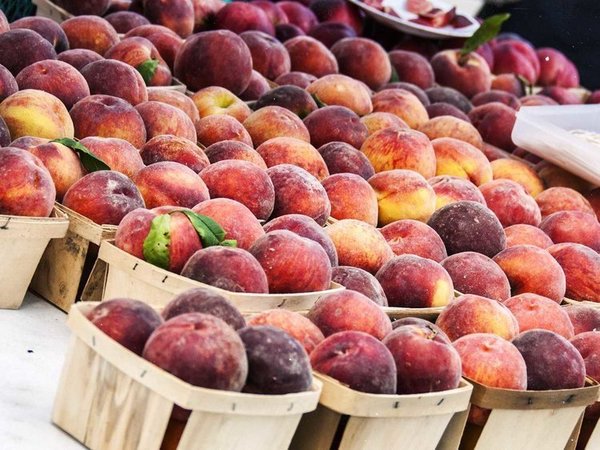The Ugly Company on College Campuses
- Students
- Haley Christian and Elizabeth Finnerty
- College(s)
- College of Science, Mendoza College of Business
- Faculty Advisor
- Michael Mannor
- Class Year
- 2020
 Source: businessinsider.com
Source: businessinsider.com
This report investigated the market landscape of sustainable dried fruit in the student-aged segment and how The Ugly Company can best expand its product into this segment.
This report detailed several key findings upon which recommendations were made:
- Demand for dried fruit is low to moderate in the college student demographic. Only 33% of consumers have consumed dried fruit within the past 3 months. The dried fruit industry is growing at a rate of 1-3% annually.
- The younger generational cohort is generally interested in consuming pro-environmental products. Key factors affecting young consumers' environmental attitudes are altruism, interpersonal influence, and environmental knowledge. Young adults are very receptive to “ green ” advertising and sustainability efforts. Authentic green brands have the potential to perform well in the college student segment.
- There is a belief in behavior dissonance among young consumers. Two-thirds of studied consumers exhibited a favorable environmental attitude, but only 4% were involved in pro-environmental purchases.
- Knowledge plays a role in value-based product purchasing; upperclassmen are more engaged in socially responsible purchasing behaviors than underclassmen.
After completing a thorough analysis of the college demographic's consumer behavior, the team recommended The Ugly Company:
First, develop a partnership with Campus Dining Services. The team’s research showed that 77.1% of students prefer to learn about new snacks through social media accounts and word of mouth. The Ugly Company can raise awareness of its products by capitalizing on-campus dining's strong presence on campus and online. The team recommended that The Ugly Company should introduce its products at the beginning of the semester when students' meal points are the highest and they are the most likely to spend. Promotional efforts such as partnering with campus ambassadors, offering free samples in high-traffic areas, and running a social media campaign with campus dining would be effective methods to reach this target demographic.
Second, The Ugly Company may benefit from stronger product differentiation and highlighting other aspects of its products to improve sales among the college audience. The team found that despite almost 80% of students identifying as moderately eco-conscious, only 2.6% considered the environmental impact of food when making a purchase. The top three factors taken into consideration were a taste, price, and nutritional value, which The Ugly Company should capitalize on and emphasize during their marketing efforts on campus. The Ugly Company’s sustainability value proposition is centered around its product and sourcing. While the referenced research shows that consumers favor companies with eco-conscious practices, as more companies begin to integrate sustainability efforts into their businesses, the Ugly Company might be challenged to differentiate itself. Going forward, this might indicate that the Ugly Company should highlight what distinguishes it from other, more brand-name companies in the fruit space. This might mean highlighting its local roots and partnerships, or at Notre Dame, its tie to an ND student. Further, the team suspected the lack of environmental consideration during food purchasing for college students may be due to a lack of understanding of the environmental impact of food among students. To increase awareness of food waste and its impact on the earth, the team encouraged The Ugly Company to collaborate with sustainability groups on campus to increase education on the environmental impact of food while promoting The Ugly Company’s products.
Finally, the team recommended the company consider the plausibility of using imperfect produce in alternate products to appeal to consumer preferences. Dried fruit consists of a significantly smaller portion of the snack market for college students, especially compared to chips, crisps, and bars. As the company continues to grow and can offer more productions, there are multiple products the team believed would be viable and profitable. Incorporating the fruit into granola bars, trail mix, or drying it into a chip would all be products that have high appeal to the college demographic and may perform better than the current product.
Haley was an Accounting major at the Mendoza College of Business and Elizabeth was a Science-Business major at the College of Science. Haley’s experience in business was essential to understanding consumers’ demands and preferences, expanding the market, and creating successful marketing materials. Whereas Elizabeth’s foundation in natural sciences equipped her with strong analytical skills and a thorough understanding of the research process to ensure an effective research design and proper interpretation of data.